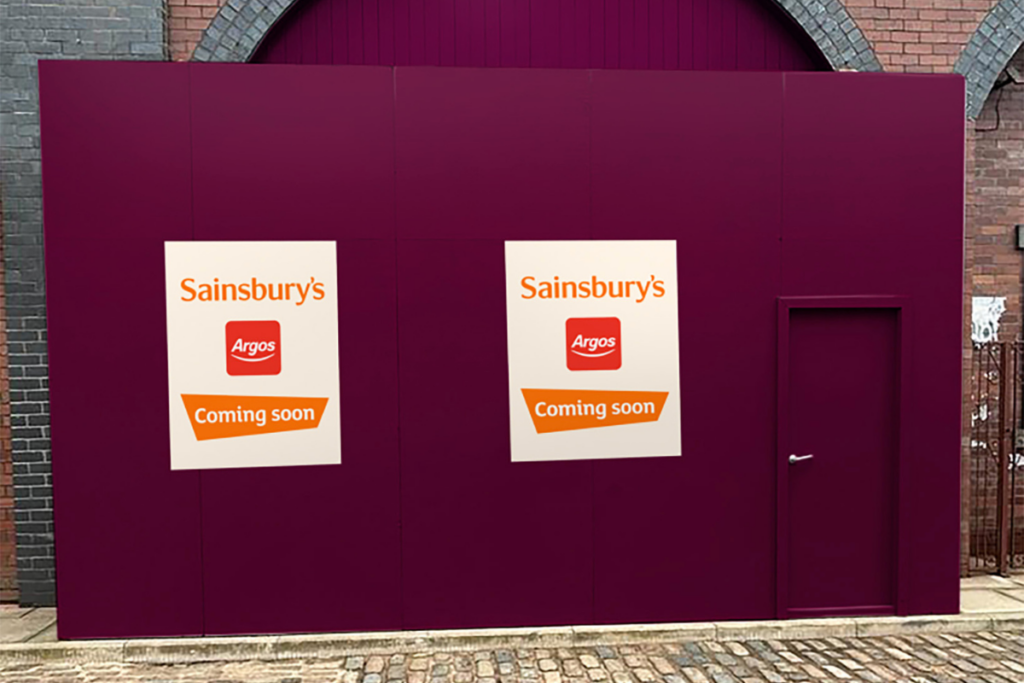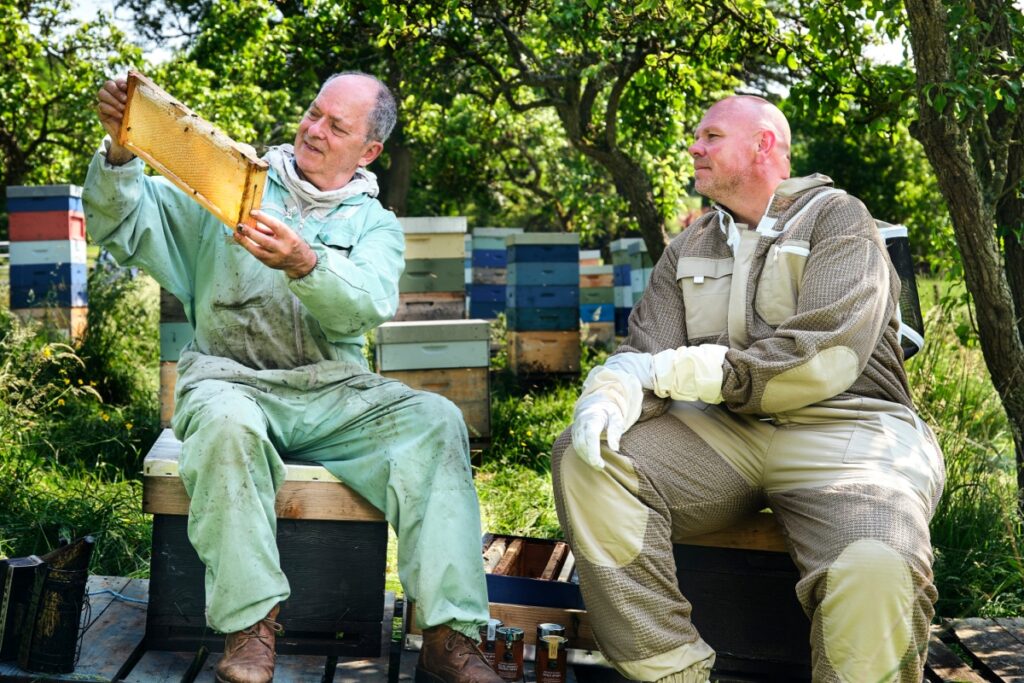Although it’s likely Christmas 2020 will end up looking different compared to previous ones, there is one aspect of the festive season unlikely to change: a love for annual Christmas adverts that’s become ingrained in British culture.
From John Lewis Partnership’s highly anticipated Give a Little Love to Sainsbury’s trilogy of festive clips and Sports Direct’s first-ever Christmas advert featuring England footballer Jordan Henderson, retailers have continued to find ways to capitalise on customers’ fondness for the festive season.
However, due to the Covid-19 pandemic UK retailers this year are expected to spend £718 million less on advertising this Christmas compared with 2019, according to a report from the Advertising Association and advertising agency WARC.
Liam Patterson, chief executive of Google shopping platform Bidnamic, said that despite the decreased spend on advertising, consumers aren’t tired of Christmas campaigns.
“Just look at the buzz the annual John Lewis ad still generates across the country and the amount of engagement the ads get across social,” he said.
“However, for retailers, the fixation on making TV adverts and spending huge amounts on a decent TV campaign is outdated.”
READ MORE: Watch all of the retail Christmas adverts of 2020 – so far
Patterson argued that although festive adverts might pack an emotional punch and generate interest in a given retailer, it doesn’t necessarily mean their respective brands will be front of mind when customers shop online.
“People nowadays shop and search for products and gift ideas on Google Shopping and Amazon and it is only by optimising search marketing strategies that retailers will be in a better position to take advantage of this shift in behaviour,” he added.

Yuval Ben-Itzhak, chief executive at social media marketing company Socialbakers, said marketing for Christmas this year was bound to be different due to lockdowns and social distancing regulations.
“The vast majority of purchases will be forced to happen online,” he told Retail Gazette.
“More customers than ever will be researching, discovering and buying products via social media and ecommerce platforms.
“That’s why Christmas ads have an even bigger role than usual to play in a brand’s overall marketing efforts.
“Unlike in previous years where advertising would drive people to the store to make their purchases, this year ads need to drive them to the brand’s digital channels.
“Not only will brands need to work hard to reach and engage their audience with content that resonates, they will also have to take the customer on a journey of product discovery and purchase – a journey that won’t be happening in store this year.”
Ben-Itzhak argued that many retailers, such as Marks & Spencer (above), Boots and John Lewis, have used their Christmas adverts as an opportunity to “spread goodwill by donating and encouraging charitable giving”.
“Gestures like these will resonate better than ever with audiences, as many people are facing hardships of their own,” he said.
John Lewis and Waitrose’s combined Christmas advert Give a Little Love will help raise £4 million for two charities – FareShare, which helps those facing food poverty, and Home-Start, which works with parents who need support.
Boots’ Christmas campaign is also centred around acts of kindness, acknowledging that 2020 was a year no-one expected. It announced a donation of £1 million worth of hygiene products to The Hygiene Bank.
“Other brands are sticking to known themes to build familiarity and loyalty with their online community, like Aldi’s much-loved Kevin the Carrot, who we first got to know back in 2016,” Ben-Itzhak said.
Meanwhile, Lynne Deason, head of creative excellence at market research firm Kantar, highlighted that retailers needed to be aware of the reality consumers faced.
“Any attempt to reference the Covid-19 situation must be authentic and not a forced fit,” she argued.
“Many brands are using resonant themes like benevolence and giving back, but failure to deliver this in a genuine way will result in a generic ad that struggles to earn attention and is poorly branded.
“It could even damage the brand if it’s seen to be taking advantage of the situation to simply sell more stuff.”
Michael Coden, head of marketing at marketing agency ProQuo AI, agreed. He said the message retailers spread during Christmas should feel “creatively fresh, but not extraordinarily new”.
“This is a time to drive home your brand’s core ethos with a fresh creative flare – not to stand for something one month and abandon it for the next 11,” he said.
“John Lewis and Waitrose are of course a leader in the Christmas advert space – and because they are, they often set the expectations and the bar for others.”
https://www.youtube.com/watch?v=yLa1p0uGL9I&feature=emb_logo
For many people, the John Lewis Christmas advert signals the beginning of the festive season. Over the past 10 years, the retailer’s memorable adverts include The Long Wait in 2011, Monty the Penguin in 2014, The Man On The Moon in 2015, and The Boy and the Piano in 2018 – which starred Elton John.
This year though, parent company John Lewis Partnership considered shelving the production of its anticipated Christmas advert. But charity partners had persuaded the firm to go ahead.
Aaron Goldman, chief marketing officer at software company Mediaocean, said the latest John Lewis advert did “a good job showcasing acts of kindness that don’t require much effort and thus don’t make people feel guilty for not being able to do more”.
Coden argued that while retailers portrayed 2020 as a year to forget, Tesco had viewers confronting it – with white lies, shortcuts, a tooth fairy “self-isolating” and set to Britney Spears’ iconic hit Oops! I Did It Again.
https://www.youtube.com/watch?v=8CfrpexaCwg&feature=emb_logo
“Tesco drew attention to the fact that this year was untraditional and used that as creative stand out,” Coden said.
“Tesco stood out – perhaps for the wrong reasons – by asking people to reflect back on the year that was, claiming that ‘after this year, there is no naughty list’.
“An optimistically intended message which unfortunately felt depressing.”
On the other hand, Deason argued that Tesco “brilliantly” tapped into the mood of the nation.
“We are seeing some very different approaches from the retailers to the Christmas ads this year,” she said.
“Finally, we have permission to stop punishing ourselves for all our little ‘fails’ this year and banish our self-created guilt, because at Tesco this year there’s no ‘naughty list'”.
Meanwhile, Lidl took an untraditional approach by poking fun at the more traditional and emotive festive campaigns that retailers lean towards. David Ringer, managing director at mobile wallet app Stocard, said it provided a “refreshing and light-hearted take on what is set to be a very strange festive period”.
“With ongoing economic uncertainty and people not yet knowing if they’ll be able to spend the festive period with their loved ones this year, Lidl’s focus on the value it can bring at this time is sure to resonate with many of us and set it apart from other grocers,” Ringer said.
Goldman highlighted that standing out from the pack was always a smart tactic: “What’s important is to stand out for the right reasons. Lidl did a good job of striking the balance and reminding everyone that it has great prices and selection.”
To capture the nation’s wallets, fellow discount retailers Aldi and TK Maxx focused their budgets on creating Christmas campaigns about bringing people together and putting their staff and customers first.
Aldi’s festive advert once again focused on its main star Kevin the Carrot reaching home to his family in time for Christmas, while TK Maxx’s The Lil’ Goat ad focused on “making everyone feel special, even pet goats”.
Arguably, 2020 was nothing short of a curveball year. So much so that a Christmas advert alone may not be enough for retailers to generate much-needed sales during the golden quarter amidst the pandemic.
From an advertising perspective, this spun this years’ Christmas adverts in two different directions. While various retailers depicted different types of families in different types of scenarios, the common differentiator was the choice in how retailers depicted time. But one thing was clear: these adverts either looked forward or backward.
Click here to sign up to Retail Gazette‘s free daily email newsletter


















